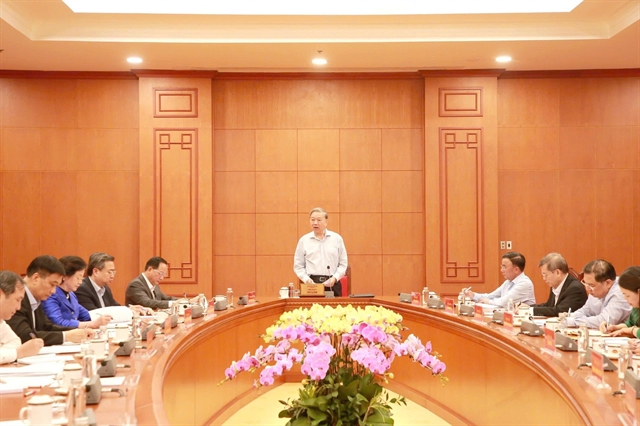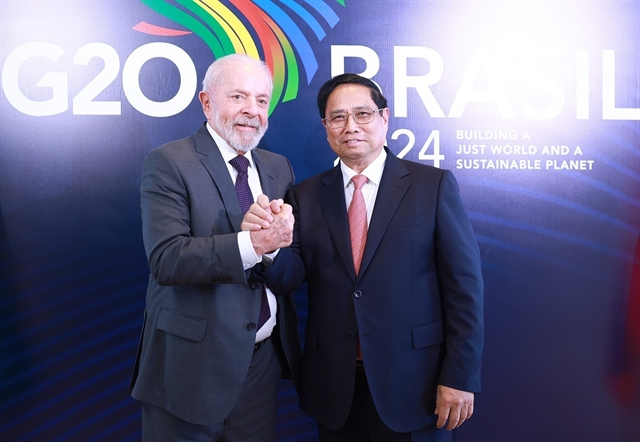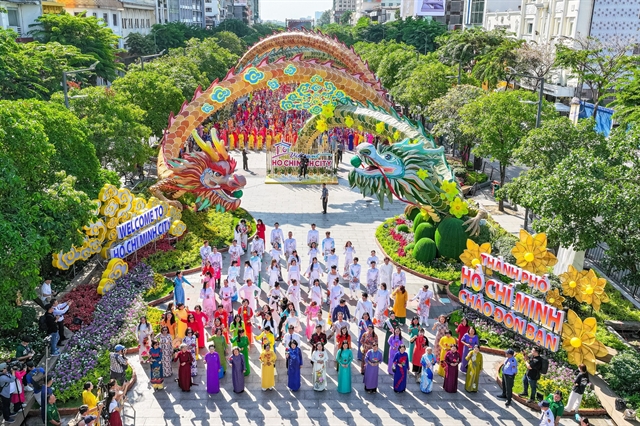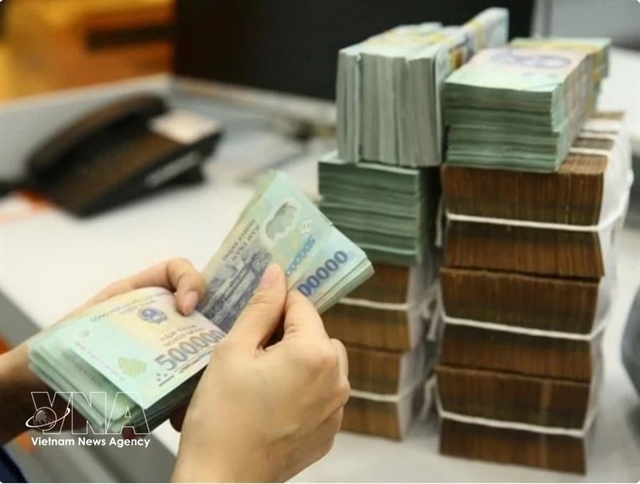 Politics & Law
Politics & Law

 |
| Brazilian President Lula da Silva (left) and Vietnamese Prime Minister Phạm Minh Chính at the talks on the side of G20 Summt in Rio de Janeiro on November 14, 2024. — VNA/VNS Photo |
HÀ NỘI — Foreign Minister of Brazil Mauro Vieira highlighted the significance of Brazilian President Lula da Silva’s upcoming state visit to Việt Nam, stating that it will mark a new chapter in their bilateral relations.
In a recent interview with the Vietnam News Agency, Vieira said Brazil considered Việt Nam a trusted friend and an important ally in the Southern Hemisphere, stressing that the diplomatic ties between the two countries had been built on friendship, cooperation, and mutual respect.
Since Lula da Silva’s return to office in January 2023, Việt Nam-Brazil relationship had gained significant momentum, the FM said, adding that Vietnamese Prime Minister Phạm Minh Chính’s historic visit to Brazil in September 2023, the first ever by a Vietnamese Prime Minister, marked a milestone in the renewed engagement between the two sides.
For Brazil's priority areas of cooperation to further strengthen relations with Việt Nam in the coming time, Vieira said at their meeting on the sidelines of the G20 Summit in Rio de Janeiro last November, President Lula and PM Chính took a historic step in elevating the bilateral ties to a strategic partnership, and this milestone reflected the strength of diplomatic relations and the enduring friendship between Brazil and Việt Nam.
According to Vieira, the upgrade of the bilateral ties has underscored the breadth of the two sides’ shared agenda and common vision for reformed global governance rooted in peace and development. Both countries are committed to pursuing multilateralism, the rule of law, and peaceful settlement of disputes, with the UN at the core of the international system.
"Our societies share aspirations for stability, prosperity, and sustainable development," he said.
Brazil was developing an action plan to implement the strategic partnership, serving as a roadmap for cooperation in key areas such as defence, science - technology, innovation, agriculture, environmental sustainability, and energy transition, the minister said, stressing that these areas would hold great potential for stronger cooperation.
He expressed his belief that new cooperative areas would emerge as the partnership continues to grow.
Brazil highly values its economic partnership with Việt Nam, as reflected in the commitment to expanding bilateral trade with set ambitious targets that requires joint efforts from both countries, according to the FM.
The two countries vowed to raise bilateral trade to US$10 billion by 2025 and $15 billion by 2030.
Regarding the prospect of negotiating a free trade agreement between Việt Nam and the Southern Common Market (MERCOSUR), the FM said "since Brazil is a member of the MERCOSUR, every trade negotiation involving tariff concessions requires a decision by its members. We are collaboratively evaluating the most suitable framework for deeper economic cooperation with Việt Nam, considering the economic policies of our nations."
Strengthening economic ties between Brazil and Việt Nam would depend on promoting the bilateral agenda on issues of common concern such as investment, and sanitary and phytosanitary measures, he said, noting that this would foster a more comprehensive economic partnership, which would drive sustainable growth and prosperity for both countries.
On Brazil’s priorities to address climate change, Vieira said the 30th Conference of the Parties of the UN Framework Convention on Climate Change (COP 30), set to take place in Belém, Brazil, this November, would be a turning point in climate action, advancing progress across the five pillars of mitigation, adaptation, finance, technology, and capacity building.
Brazil would give priority to just transition, an inclusive and equitable low-carbon economy, he said, stressing that the transition must promote social justice, reduce inequalities and create opportunities for sustainable and dignified livelihoods.
These priorities would shape the COP 30 agenda. Its success would be measured not only by negotiated agreements but also by the ability to drive real transformative action, he added. — VNA/VNS




